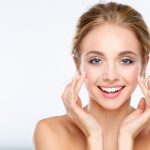Introduction To Skin Whitening Products
In today’s beauty industry, skin whitening products have gained significant popularity. Many individuals are seeking ways to achieve a brighter, more even complexion, leading to a plethora of products designed to address various skin concerns. However, it’s essential to approach these products with care and understanding. This guide delves into the various types of skin whitening products available, their effectiveness, and how to integrate a dry damaged hair mask into your skincare routine for a holistic beauty approach.
Understanding Skin Whitening Products
Skin whitening products are designed to lighten skin tone, reduce hyperpigmentation, and promote a more radiant complexion. These products often contain ingredients that inhibit melanin production, the pigment responsible for skin color. Common forms of skin whitening products include creams, serums, masks, and even oral supplements.
Types of Skin Whitening Products
-
Whitening Creams: These are among the most popular skin whitening products. They often contain ingredients like hydroquinone, kojic acid, and arbutin, which work to lighten dark spots and even out skin tone. Regular application is crucial for noticeable results.
-
Whitening Serums: Serums are concentrated formulations that penetrate deeply into the skin. They are often used to target specific issues like dark spots or uneven skin tone. Ingredients such as vitamin C, niacinamide, and alpha arbutin are commonly found in whitening serums.
-
Whitening Masks: These masks are designed to provide a boost to your skincare routine. They often contain ingredients like licorice extract, bearberry, and glutathione, which help to brighten the skin and reduce hyperpigmentation.
-
Whitening Oral Supplements: Some people opt for oral supplements that claim to support skin whitening from within. These typically contain antioxidants and vitamins that may help improve skin tone and texture over time.
If you want to know more information about dry damaged hair mask visit O Pure dubai.
Key Ingredients in Skin Whitening Products
Understanding the ingredients in skin whitening products is essential to choosing the right product for your skin type. Here are some key ingredients commonly used in these products:
-
Hydroquinone: A powerful skin-lightening agent that inhibits melanin production. It is effective but should be used under medical supervision due to potential side effects with prolonged use.
-
Vitamin C: Known for its antioxidant properties, vitamin C helps brighten the skin and reduce the appearance of dark spots. It also supports collagen production, which can improve skin texture.
-
Niacinamide: Also known as vitamin B3, niacinamide helps to lighten skin discoloration and improve skin barrier function. It is gentle and suitable for sensitive skin.
-
Arbutin: A naturally occurring compound that inhibits melanin production. It is a safer alternative to hydroquinone and is effective in reducing dark spots and hyperpigmentation.
-
Kojic Acid: Derived from fungi, kojic acid helps to lighten skin by inhibiting melanin production. It is often used in conjunction with other ingredients to enhance its effectiveness.
-
Licorice Extract: Known for its skin-brightening properties, licorice extract helps to reduce dark spots and improve overall skin tone.
Choosing the Right Skin Whitening Product
Selecting the right skin whitening product depends on various factors, including skin type, specific concerns, and individual preferences. Here are some tips to help you choose:
-
Identify Your Skin Type: Different skin types may react differently to various ingredients. For example, sensitive skin may benefit from products with soothing ingredients like niacinamide.
-
Patch Test: Before using a new product, perform a patch test to ensure you do not have an adverse reaction. Apply a small amount to a discreet area of skin and monitor for any signs of irritation.
-
Consult a Dermatologist: If you have specific skin concerns or conditions, consulting a dermatologist can help you choose the most suitable product for your needs.
-
Read Labels Carefully: Check the ingredient list and ensure the product does not contain any ingredients that you are allergic to or that may cause irritation.
Incorporating a Dry Damaged Hair Mask into Your Routine
In addition to focusing on skin whitening, it’s also essential to care for your hair, especially if it’s dry and damaged. A dry damaged hair mask can help restore moisture, repair damage, and improve the overall health of your hair. Here’s how to incorporate it into your routine:
-
Choose the Right Mask: Look for masks that contain nourishing ingredients like argan oil, shea butter, and keratin. These ingredients help to hydrate and strengthen dry, damaged hair.
-
Apply Regularly: For best results, use a hair mask once a week or as recommended by the product instructions. Apply it to clean, damp hair and leave it on for the recommended time before rinsing thoroughly.
-
Combine with a Healthy Hair Care Routine: In addition to using a hair mask, ensure you use a gentle shampoo and conditioner suitable for your hair type. Avoid excessive heat styling and chemical treatments that can further damage your hair.
-
Hydrate from Within: Drinking plenty of water and maintaining a balanced diet rich in vitamins and minerals can also support healthy hair.
Conclusion
Skin whitening products offer a range of options for those seeking a brighter, more even complexion. From creams and serums to masks and oral supplements, it’s crucial to choose products that suit your skin type and address your specific concerns. Understanding the key ingredients and their benefits can help you make informed decisions.
Incorporating a dry damaged hair mask into your beauty routine can complement your skincare efforts by addressing hair health. By taking a holistic approach to your beauty regimen, you can achieve a radiant complexion and healthy, nourished hair. Remember to prioritize your skin’s and hair’s well-being and consult with professionals if needed to ensure the best results.

